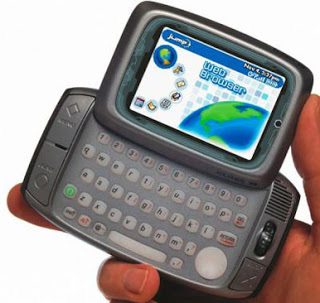
Current Events
DEAF SUFFER DURING ‘SIDEKICK’ OUTAGE
 Last week when T-Mobile’s Sidekick lost all its data and went belly-up, it was a big pain in the rear for the company’s roughly 800,000 subscribers. But that was nothing, compared to the pain felt by the countless deaf people who use the Sidekick as their “voice-box” to communicate with others.
Last week when T-Mobile’s Sidekick lost all its data and went belly-up, it was a big pain in the rear for the company’s roughly 800,000 subscribers. But that was nothing, compared to the pain felt by the countless deaf people who use the Sidekick as their “voice-box” to communicate with others.
When most of us lose cell phone coverage, we get irritated but take it in stride until service is restored. But for deaf Sidekick users, it was a loss of their lifeline and like being in a dark, soundless room. “As the outage went on, I became concerned about how my deaf teenage son would be able to communicate in an emergency,” Jamie Berke, an About.com guide, said via e-mail. “I know he is not the only one,” said Berke, who is also deaf. “The outage probably meant that thousands of deaf children who depend on their Sidekicks to communicate with parents were unable to communicate in the event of an emergency. Plus, I myself, would have been unable to communicate in an emergency.”
The Sidekick has been wildly popular among the deaf primarily because of its good keyboard, (at one time) state-of-the-art Instant Messaging abilities, and connection to relay services. T-Mobile also made improvements by adding a “data only option” so that deaf users weren’t paying for voice minutes they didn’t use. But the T-Mobile outage for the deaf was like a city-wide electrical outage for most of us, and has left many scratching their heads wondering how T-Mobile can avoid such an occurrence again. Lost data included pictures, contacts, calendars and other information from the servers, which meant potentially irretrievably lost data on individual devices.





